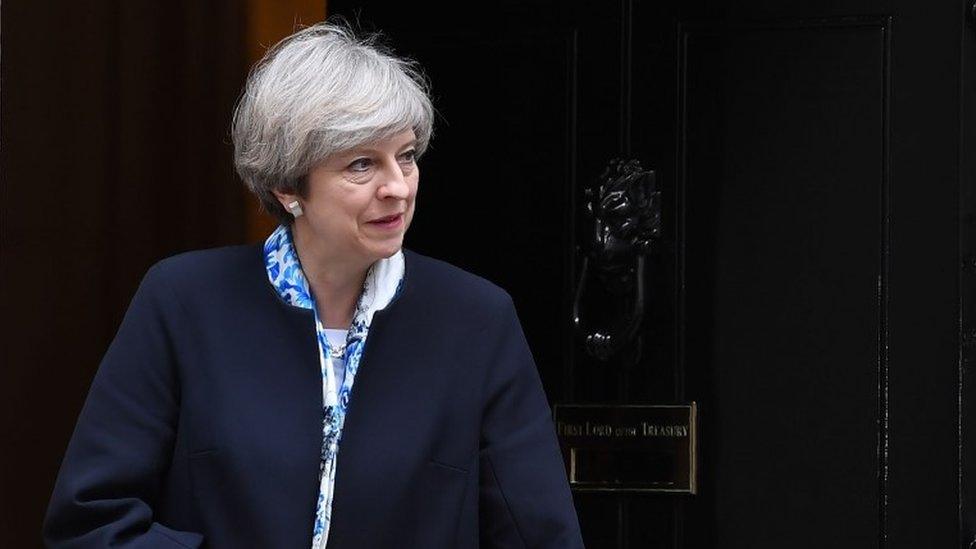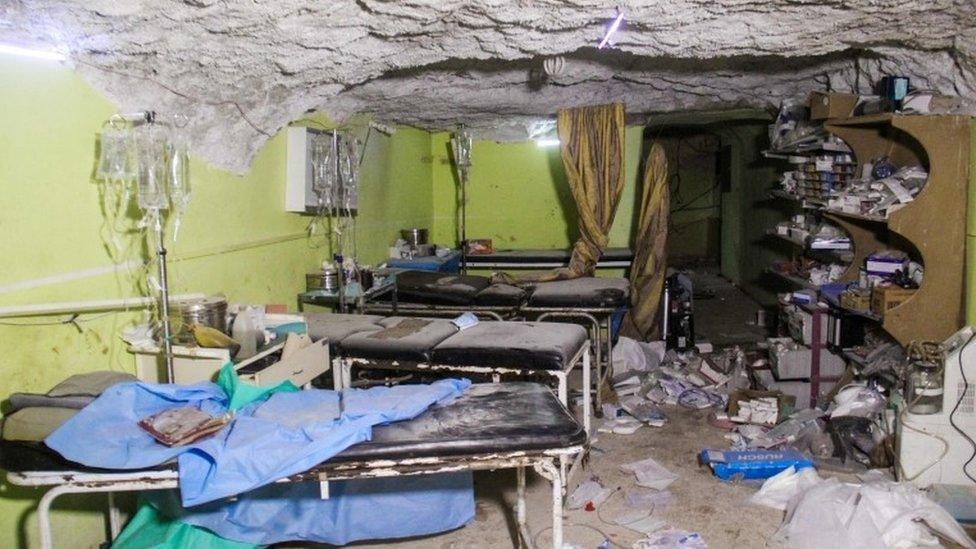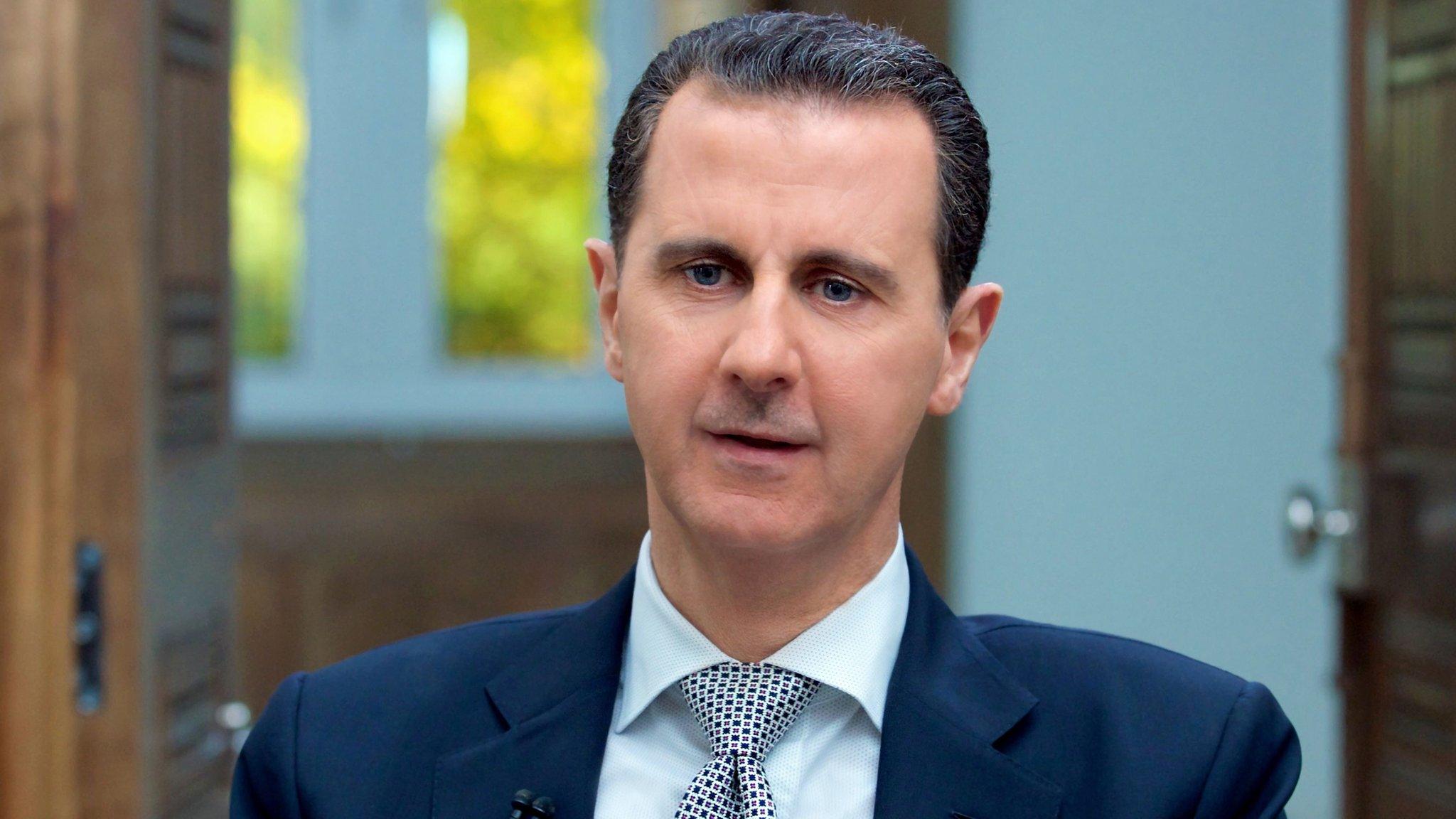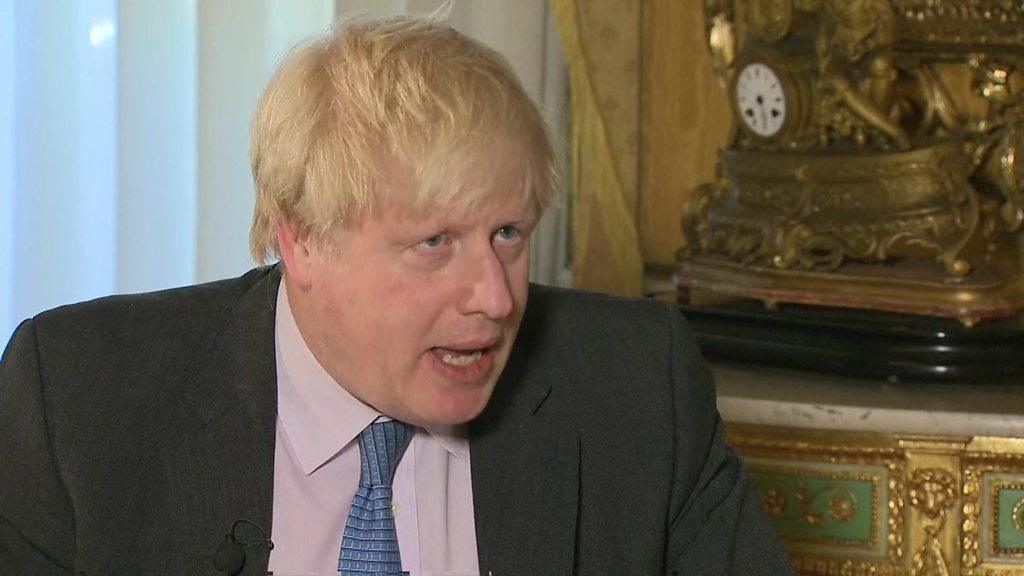Theresa May: Syria 'highly likely' behind attack
- Published

The Syrian government was "highly likely" to have been behind last week's chemical weapons attack, Prime Minister Theresa May has said.
Mrs May said British scientists had analysed material from the site of the attack that killed 80 people in rebel-held Khan Sheikhoun on 4 April.
They had said it was "very clear" sarin or a sarin-like substance was used.
Syrian President Bashar-al Assad has said reports of a chemical attack by his forces were "100% fabrication".
Labour leader Jeremy Corbyn has said an investigation must be launched to find out who was responsible for the attack.
Mrs May said: "As our ambassador to the United Nations made clear yesterday, like the United States, we believe it is highly likely that attack was carried out by the Assad regime.
"Apart from anything else, we believe it's only the regime that has the capability to make such an attack."
Mrs May also defended Boris Johnson after he failed to persuade other G7 states to tighten sanctions on Russia.
The prime minister said the foreign secretary did "an excellent job in bringing together the G7".
Speaking at the Sandhurst Military Academy in Berkshire, she praised Mr Johnson for "bringing together international opinion, and enabling United States' Secretary of State Rex Tillerson to go to Moscow with a very clear message, a consensus from the international community".
On the question of finding a solution to the Syrian conflict, Mrs May said the UK government was "willing to work with Russia" on a "political solution" but emphasised "that political solution has to be without Assad".

More than 80 people were killed in rebel-held Khan Sheikhoun
Mr Corbyn said: "An investigation must take place as to who used those chemical weapons. And when we find out who it is, it's a war crime and it should be then treated as such.
"There's got to be an immediate, independent investigation under the auspices of the United Nations to find out who did that appalling attack. It's a war crime, it's abominable, it's illegal."
In an exclusive video interview with the Agence France-Presse (AFP) news agency, Mr Assad said "there was no order to make any attack".
Hundreds of people suffered symptoms consistent with a nerve agent in the attack.
Witnesses said they saw warplanes attack the town but Russia says a rebel depot of chemical munitions was hit.
Footage showed victims - many of them children - convulsing and foaming at the mouth.
Western allies say there is compelling evidence that the Syrian government was behind what happened in Khan Sheikhoun.
They reacted angrily on Wednesday after Russia, Syria's key ally, vetoed a draft resolution at the UN Security Council - the eighth time it has done so over the Syrian conflict.
Mr Assad told AFP that the Syrian government gave up its arsenal of chemical weapons in 2013, adding "even if we have them, we wouldn't use them".
- Published13 April 2017

- Published11 April 2017
